'Anne Rice's Interview with the Vampire' Remaking Louis de Pointe du Lac
Warning: This article contains spoilers for episode 1 of 'Anne Rice's Interview with the Vampire.'
In 1973, when Anne Rice wrote The Interview with the Vampire, she was an atheist, who based her universe off of the idea that magic and gods were nothing more than myths; instead, she explained, there were things humans simply didn't understand.
She went about creating her own pantheon of bloodthirsty, vampiric deities, each a living archetype of human nature. There was Marius, the traditionalist, who worshipped the first of their kind; Lestat de Lioncourt, the god of pride and the hunt, who celebrated his immortal existence; then Louis de Pointe du Lac, an enigma whose forlorn sympathy for humans made him impossible to hate.
Louis rejected his own nature. He was a vampire who carried around the burden of guilt, like a cross he refused to lay down. For years he struggled with his own instincts, often surviving off of rodents and vermin instead of the human blood he needed to nourish himself.
He would defer to his Catholic upbringing, calling himself damned and undeserving of salvation. He cursed his companion Lestat for making him, saying that they would one day end up in hell for the things they had done.
He was unique. No other character in Anne Rice's universe felt the way he did. Many of them experienced guilt. There was anger, grief, and a visceral disgust behind the act. But they all came to accept what they were. They didn't torture themselves the way Louis did. That was his fight.
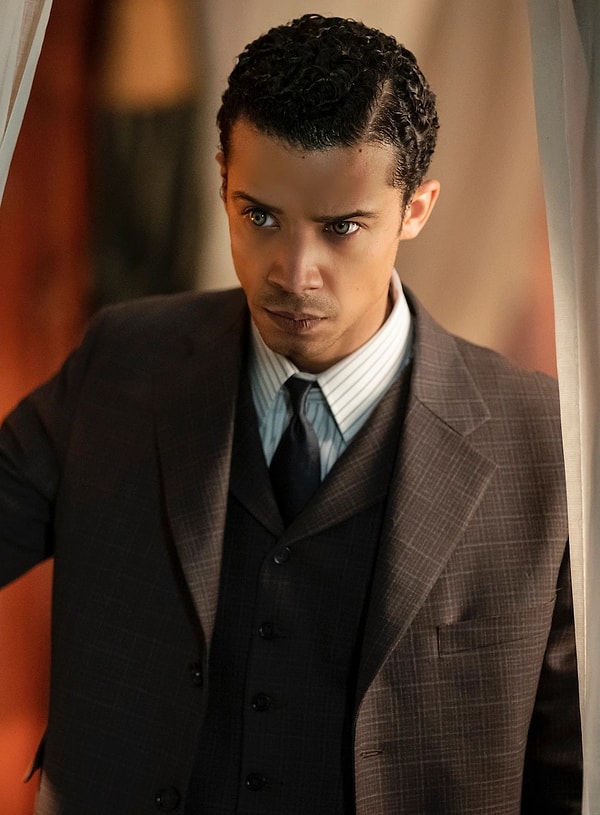
Courtesy of AMC+
Louis' struggle to remain human made it possible to identify with him. He was the gateway to another facet of our own world, where humans could transform and conquer death, levitate, and lash out with secret power. He helped Anne Rice dispel myths and children's stories, revealing the hidden truths that were only accessible to a privileged few. With her words, we could believe.
There are fans who have been a part of this world for fifty years. They were introduced to Louis when they were young, and now they're on the precipice of old age, still dreaming about a vampire coming through their window to grace them with the dark gift.
Anne Rice was their queen, an icon--part historian, part philosopher, part sorceress. She wasn't an author; she was a biographer. She wasn't a fiction writer; she had seen things, which meant that her word was canon. Anything else was a twisted version of the truth. That was one of the reasons why she was so careful with adaptations of her work. They weren't the truth.
She saw her characters as real 'people,' and she adored them as if they were real. She was in love with Lestat, and she said so on many occasions. That's why she was so furious when she found out that Tom Cruise would be playing him in the 1994 film. Cruise did an amazing job, and she recognized that, but she reacted just like a lover. That wasn't the man she created and adored. She had to come to love him in her own way as time went on.
Hollywood hasn't been nice to her. After refusing to take her views into consideration during casting in 1994, they created a new film, essentially parodying her greatest masterpiece Queen of the Damned. It was so bad and so completely off the mark, it would be easy to imagine her losing her mind over it. That book was the Sistine Chapel of vampire epics, and they turned it into the ultimate slap in the face. It was corny. The makeup was horrific. They completely changed everything about the characters. It wasn't even based on the old plot. Decades of work had been stomped on and ground into the dirt by marketing execs and studio butchers.
Now she's gone and barely three years after her death, AMC+ has a new interview for us. There's also a making new Mayfair Witch series, based on the lesser-known series by the same name. In fact, they plan on remaking the entire Immortal Universe, which includes most of her life's work.
Make no mistake, Anne Rice is writhing in her grave, clawing at the inside of her coffin, and shrieking to be let out. She wouldn't have allowed them to do this. Anyone who even entertained the thought in her presence would crumble to ash a like a vampire in the sunlight.
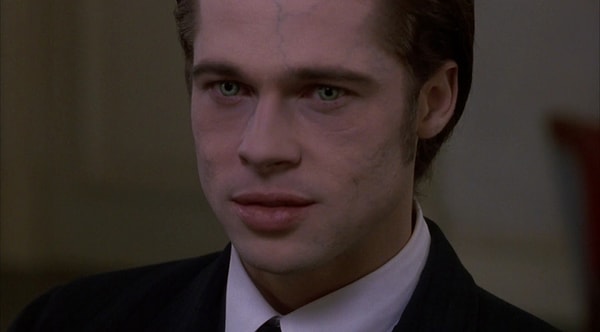
Courtesy of Warner Bros.
We are Grieving Deities
Now we're mourning the old Louis, a fan favorite. He'll drift off into secrecy never to be heard from again. That's after 50 years of gleaning clues in Anne Rice's books, hoping against hope that she would write another novel from his perspective. She loved Lestat, but we clung to the beautiful philosopher.
This new actor AMC+ has stuck us with (Jacob Anderson) might seem like a punch in the gut to some. He's not what we're used to. He doesn't look anything like the Louis from the novels. His race is different. He's not even from the same time period. This is a fandom that sees canon as sacred, and the studio is not respecting that.
They didn't make those changes to help the storyline. They were afraid of marketing a plantation owner who drained his slaves, and they weren't comfortable showing the 18th century--understandable, to be sure, but it's not Anne Rice's 'truth.' And there are many who are tired of seeing adaptations altered for marketing purposes. It feels cheap.
Anne Rice didn't care about marketing. She cared about realism. She didn't make things palatable. That was part of the allure of her work. That didn't make her racist. She took on the role of a biographer, telling the facts as they happened, even if we didn't like that.
There are many well-written, quality productions that have decided to change the race of their characters instead of remaining faithful to the source material. That is fine, and many fans would binge the heck of out them. I know I have.
But it's different with Anne Rice. Her words were seen as the whole truth and nothing but the truth. Anything else is fake. It's a lie.
AMC+ either doesn't understand that or they're ignoring it. That is not our Louis. It's not Anne Rice's either.
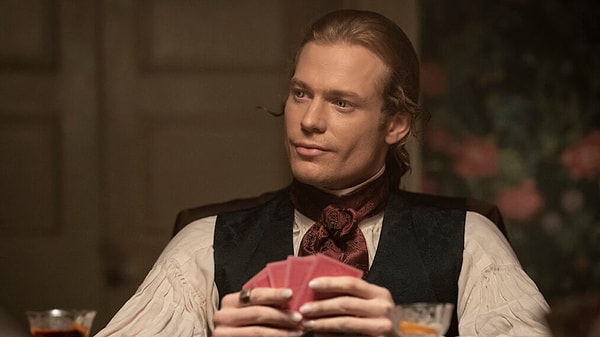
Courtesy of AMC+
Sometimes Change Can Be Good
'Let the tale seduce you just as I was seduced'
- Louis de Pointe du Lac, 'Anne Rice's Interview with the Vampire,' AMC+
There are advantages to the changes that have been made to Interview with the Vampire. The series comes swinging right out the gate. Louis' story begins in 1910. The Pointe du Lacs have inherited a sugar plantation, but as people of color living under Jim Crow, it wasn't possible for them to maintain that vocation. In fact, Louis had very few opportunities for honest, gainful employment.
Instead, he manages a group of shacks in Storyville, New Orleans, which acted as the red light district in town from 1897 to 1917. He's a pimp who targets vulnerable women, offering them a place to stay and a meager sum in exchange for sexual labor. It's the basic sex trafficking scheme many of us have heard about on the news. But it's not explicitly detailed until the audience is forced to confront his moral failings later in the series.
Storyville was the kind of place where you couldn't show weakness. Everyone was poor, hard up, and addicted. They were out for themselves. Near the beginning of the premiere, we see him moving from shack to shack, collecting money, and solving the common tussles that occur in those kinds of places.
He's made aware of a problem. Someone is causing trouble at one of his houses. It's his brother Paul. He's preaching to the prostitutes, and he won't leave them alone. Louis is put in a hard situation. Paul won't stop. He won't leave, and Louis can't let people think that he's a pushover, so he presses a knife to Paul's neck. It was ruthless, vile, and wrong, and it spoke to his character. He was putting on a show for the rest of Storyville. But this is still not the Louis we once knew. This man was very different. He had denied his own humanity.
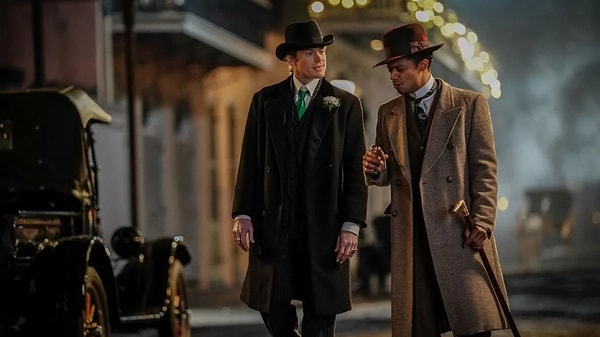
Courtesy of AMC+
Immediately we were introduced to a world with style, complex characters, and first-rate dialogue. It was gritty, vulgar, and comical. Whoever butchered Rice's manuscript knew how to cut a slice of meat, and they understood something that she could never fully grasp.
Anne Rice wasn't a novelist, not in the traditional sense. Half of her material was based on describing Lestat, his personality, and his appearance. There were plot points and things that happened, but she would go thousands of words without even setting up a scene. It was all about the vampires making their mark, like the literary version of 'Lestat was here.' She was open about that.
Sometimes there was no climax or suspense. There might've been a cool scene at the end, maybe a death or an explanation, but there was no traditional plot. Instead, she made us feel like we were having a conversation and getting to know somebody, seeing the world from their perspective.
There were times when our eyes got tired. We'd skim through to find scenes, and sometimes Anne Rice would get so deep into the vampire's mind that it was like she lost her place when she was writing. We forgot where we were.
Did that mean we hated it? No, it absolutely did not. Many of us still rifle through those old tomes, marveling over those creatures. They were gods. But we missed the witty quips, the props, and the settings. Those were there, and at times they were so engrossing we couldn't help but fall into them. They just weren't the focus,
The series changed all of that. They gave us dialogue that we could take a bite out of. There was a comical exchange with a prostitute who beat up her trick. The way that Louis spoke to his brother Paul was tense and scathing. We felt that. We didn't experience that in the novels.
We had trouble connecting with Louis in the book. His original backstory was lost to memory. We'll often see fans who get things mixed up, convinced her grew up in Europe or that his entire family died, or that he killed his wife. Some would say he killed his brother.
It's because Anne Rice didn't set the scene properly. She had an interviewer that kept interrupting Louis' story. Louis would tell us about his plantation, and the interviewer would ask him something. He'd go on, and the interviewer would interrupt again.
The details were general and vague. Louis didn't mention his brother's name. He rarely referred to his mother and sister. It seemed as though Anne Rice wanted us to be more concerned with his life as an immortal, so she skipped over the details, but those details made him who he was.
The series didn't make that mistake. They understood that we wanted something immersive. We had to get to know Louis before we delved in. So they took their time painting the full picture, and this time it was mostly free of the distractions we were so used to in the novels.
The writers were top-notch. They showed us Louis' brother in stark detail. He was a gentle schizophrenic who committed suicide. In the book, he took up all of four lines, and his illness wasn't specifically identified. He just had 'visions.'
This was somebody who was integral to Louis' struggle, and we didn't even know his name. The man was responsible for Louis' characteristic guilt. His memory stuck with Louis for centuries. We deserved to know him.
Even with Louis' changed appearance, it was like we were getting to know the same man. Yes, he lived in a different time period. Yes, he was a different race, and his struggle was tied to his race. But he was more real than the Louis Anne Rice created, and his story was even more compelling.
In the novel, Louis' brother fell down a set of steps after imploring Louis to sell their plantation for the good of the Church. He had been spending all of his time in the rectory that Louis had built for him, and he was starting to show signs that he was going mad. Louis yelled at him, essentially calling him crazy, and he fell down, killing himself in the process.
Louis' family blamed him for that. They thought that he had said something or done something to make Paul fall, but that wasn't true. He internalized that guilt, and it festered inside of him. This part of the novel was framed as a conversation, not a scene. The interviewer kept interrupting over and over. It was hard to get lost in it. This is a mistake that all writers are told to avoid.
The series rubbed our noses in it. They had Paul and Louis share a moment together on the roof after Louis' sister's wedding. It was sweet, and then all of a sudden Paul jumped. We felt that, and we felt Lous' pain when his mother accused him of pushing Paul off. It was because we could see all of it happening. We saw the mother's face. We saw Paul just suddenly walk off the roof. We saw Louis' expression. That is why writers create scenes for pivotal moments in their character's development. Modern publishers and writing teachers would have said the same thing. Anne Rice had a habit of shirking the rules, and sometimes her work suffered for it.
After his brother's death, the book simply told us that Louis was grieving. It talked about his suicidal ideation, his unwillingness to stay at home, and how he sought out death. We saw it on Brad Pitt's face in the film when he cheated at a game of cards in a tavern. But it wasn't enough. This was a defining moment for Louis, and all we got was a facial expression and a few lines.
The series changed all of that. They had him shrieking in a confessional, telling us who he really was, how he targeted young girls, and how he'd been with a man. We were confronted with an explosive burst of emotion. Then that confessional was ripped out of the ground, and he was offered the dark gift. That was drama. It was real guilt. There was no denying that the series did it better.
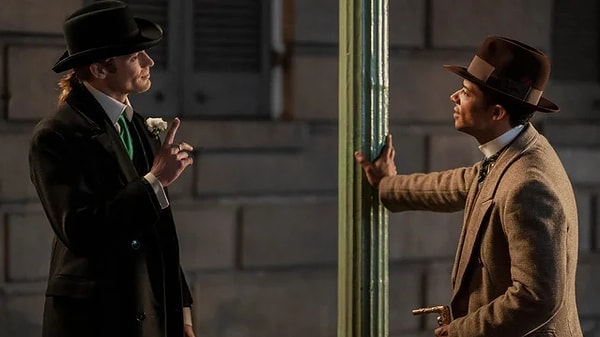
Courtesy of AMC+
Reinventing Louis
The human we saw trembling and confessing his sins after his brother's death was not the same Louis we knew from the novels. In the series, Louis had an extraordinary intellect, and like many intelligent men, he hated humanity. He saw us as a herd of sheep acting on instinct, not sentient beings.
It's a depressing outlook. Men like Louis see the simple failings of humankind, and they can't stand it. So they drink and do drugs to dull their senses. Lestat saw that, and he loved Louis for it.
There was no such depth to Anne Rice's version of Louis. We barely even saw his origins. We were never transported to the confessional. Instead, Louis had a bland nocturnal visit from Lestat. She didn't describe Louis' transformation into a vampire, either. Louis couldn't put it into words.
The series used succinct metaphors and stark visuals, so effective that we could almost sense the change within ourselves. That's the way the process should've been portrayed from the beginning.
By changing Louis' backstory, they allowed us to connect with him in a way that we could never connect with him before. It was a dark gift nobody ever expected. They had even mastered the flowery voice from the novels, and at times they even seemed to improve upon it.
As fans of the original novels, we should learn to accept Anne Rice's failings and dive into this new universe. It's helping us appreciate her work even more, even if it is different. Going forward, this might change. AMC+ could completely screw it up. There are large portions of the Vampire Chronicles that are impossible to adapt into film. It sounds like they're already changing portions of the modern world. They mentioned something called the Great Conversion, which did not take place in the novels.
It's going to be especially difficult for the studios and the fans when they start adapting the later books. Some fans treat them like scripture. There will be improvisation, cancellations, bad cliffhangers, budgetary concerns, and casting issues. Some of the original material might be too shocking for the network. Some of it is a little strange. Hollywood has always had that problem with Anne Rice. People went into shock when the 1994 film came out. They fainted. Celebrities talked about leaving the theater. Can AMC+ really dedicate themselves to the Immortal Universe? Are they going to be true to the story of the twins? What about Memnoch the Devil? Will they portray Akasha's gluttonous slaughter? For the moment they've earned our attention. That could change later on down the road.
Keşfet ile ziyaret ettiğin tüm kategorileri tek akışta gör!

Send Comment
"barely three years?" Are you a time traveler? She's not been dead a year. Hell, we havent even had her second line yet!